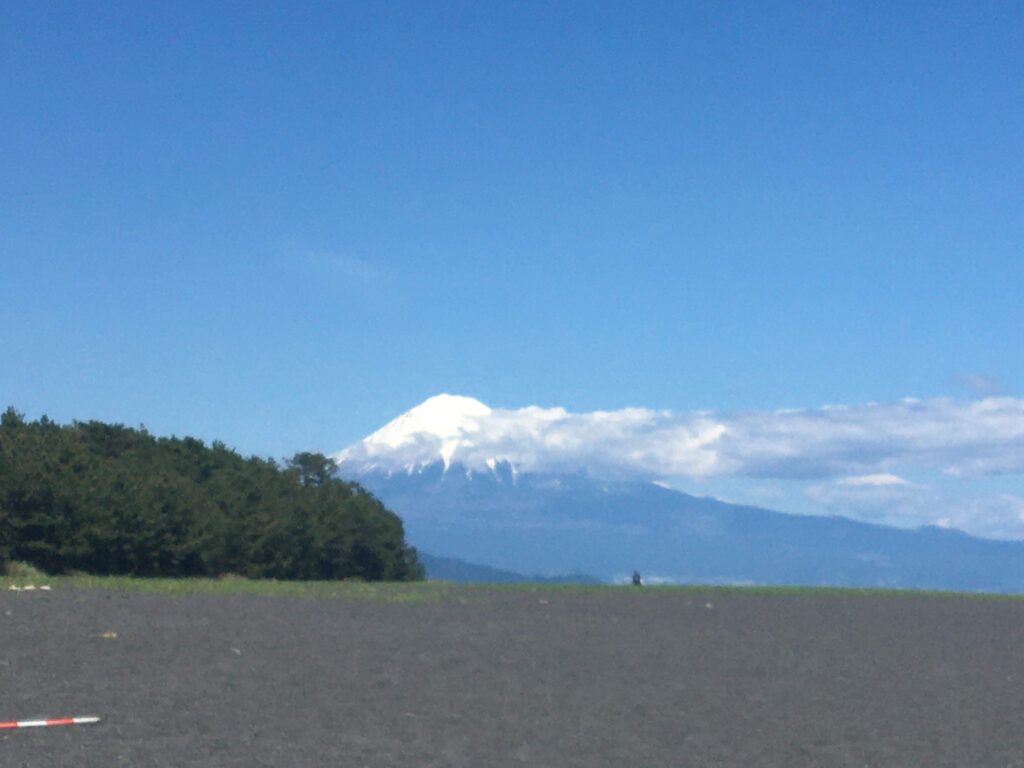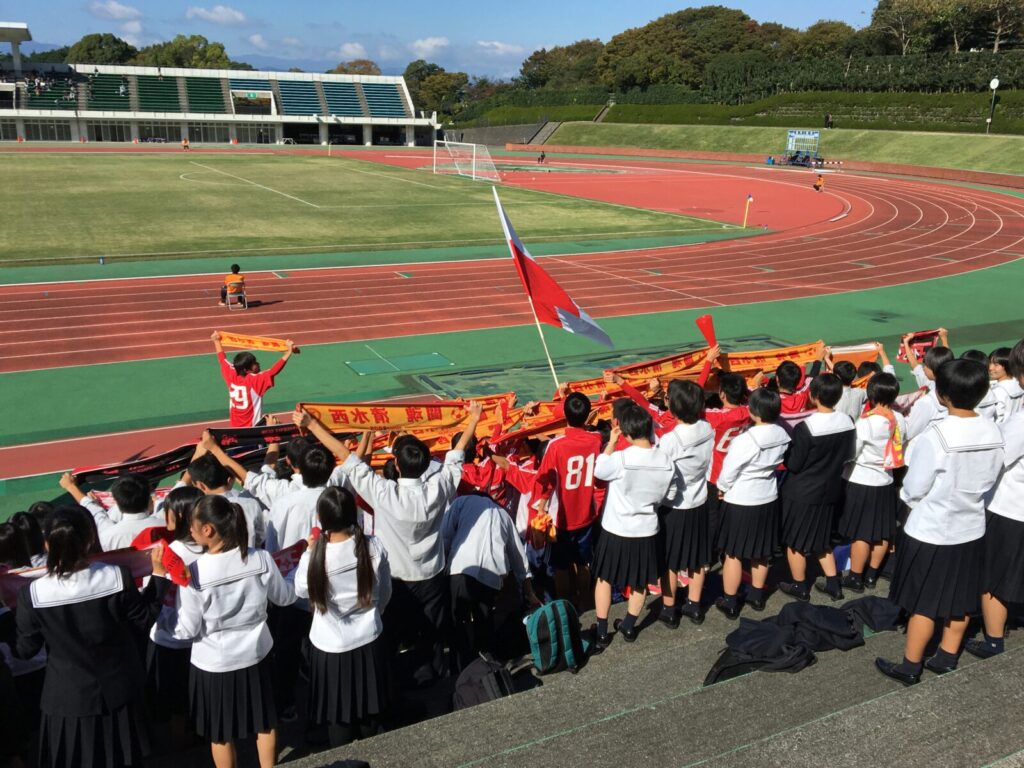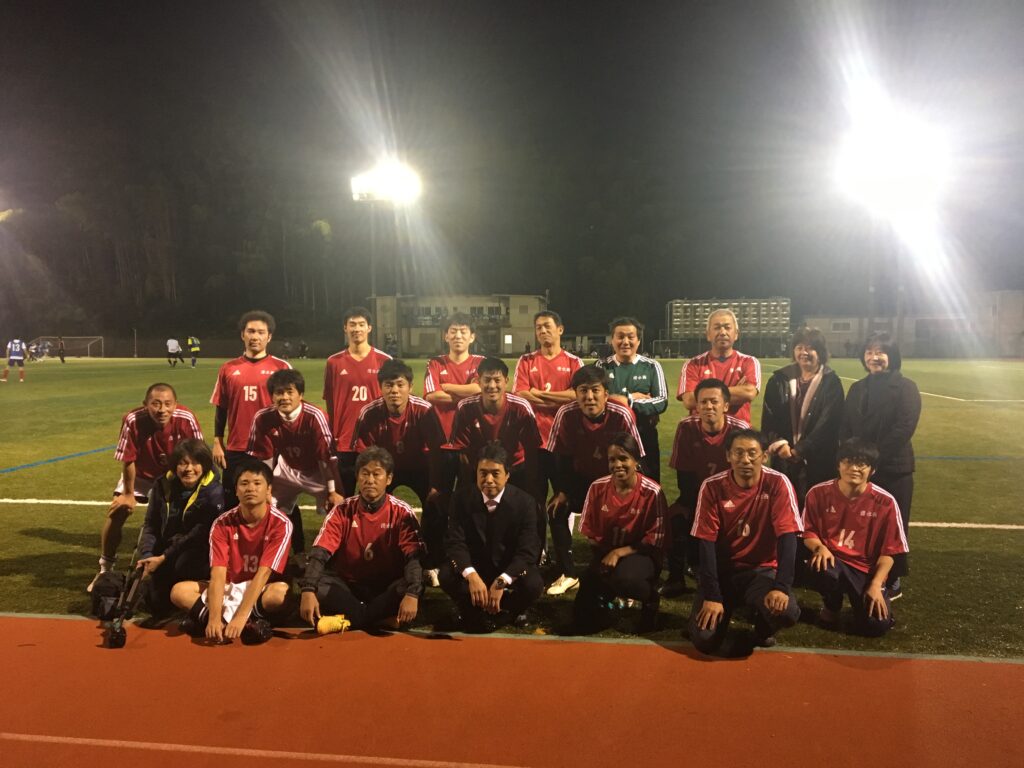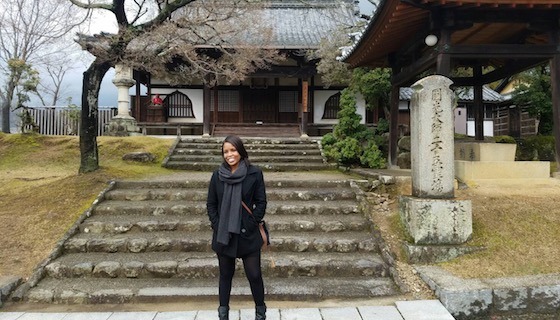Driven by wanderlust, Bridge grad Colette Hosten’s pursuit of an EFL career outside her hometown in Trinidad and Tobago steered her to an English-teaching position in Shizuoka Prefecture, Japan. We interviewed her to learn more about her TEFL experience under the Japanese government’s international exchange program (JET), her immersion in a new culture, and her future plans to globetrot as an English teacher.
Hi, Colette! Can you tell us a bit about yourself?
I’m from Trinidad and Tobago. I’ve been in Japan for the past four years teaching English at a public high school. This was my first time teaching EFL and my first time teaching young people.
What brought you to the English-teaching field?
I got into teaching by chance seven years ago. I had just returned to Trinidad after getting my Master’s Degree in Rhetoric and Communication Design in Canada, and a friend working in a local university asked me to help them run a pre-university program. We taught writing, research, and computer skills to adults preparing to return to university. I also taught Public Relations at another local college. But all my teaching experience in Trinidad was part-time.
How did you choose Japan as a place to teach English?
It was basically a filtering process. I wanted to experience a new culture, so South America was out because it is relatable to Caribbean culture. (Fun fact: Now I hope to move to South America after Japan). I did not have a TEFL/TESOL certificate so I was not eligible for many European opportunities. So I looked to Asia. In Asia, Japan seemed to offer the challenges and learning opportunities of a new culture while still maintaining the “creature comforts” that would make living there safe and enjoyable.

A view of Mt. Fuji from Shizuoka
Which part of Japan are you currently living in? What is that place like?
I live in Shizuoka prefecture (and city). It is the proud home to half of Mt. Fuji and my city is three hours west of Tokyo. Shizuoka city is big and bustling but not diverse, which means there’s very little English. And Shizuoka prefecture has wide-ranging terrain so beaches, mountains, waterfalls, and acres of countryside stretch in every direction. My own city is a port city, which the island girl in me appreciates. So I think it’s been a perfect placement. There’s lots of shopping, dining, and 24-hour convenience stores, but twenty minutes outside of the city it’s very suburban and quiet.
What do you like most about teaching in Japan?
The discipline among the students is something I will never get over. They are also so warm and curious and almost innocent. I can’t even imagine teaching high school anywhere else. Also, teachers are well-respected in Japanese culture. There are many countries where teachers are overworked and underpaid, and they are the first to blame and the last to thank. Here I feel like teaching is truly regarded as a noble profession.

Colette’s high school at a sporting event
How did you land your teaching job in Japan? What was the application process like?
I am in the JET program, which is a government initiative. Native English speakers from across the world are invited to apply. Applications are run through the local Japanese embassy. JET is about cultural ambassadorship as much as it is about teaching. So, the interviews are concerned with your openness to cultural exchange as much as your teaching experience and English knowledge. They want teachers who will share their culture with the students and the community, and who are willing to learn about and embrace Japanese culture during their time here. Contracts are yearly up to five years.
Find out the most common requirements for teaching English abroad.
Can you tell us more about your teaching job?
My school is Shimizu West High School. There are about 700 students total across three grades. The students are 15 to 18 years old.

Colette (second row, right) on a rafting adventure with her colleagues
You’re in a country where there are lots of places to visit and things to do! What do you like to do when you’re not working?
This has a pre-corona and post-corona answer.
Pre-coronavirus crisis:
I loved to travel. I went to Tokyo practically every month and to Osaka and other big cities on long weekends. I was also able to visit South Korea and Thailand twice, as well as Vietnam and Indonesia. There are still many places in Japan and in Asia that I’d love to see.
Post-crisis:
I’ve stuck to Shizuoka, but it has been good for me to explore “home” more. Also, in the spirit of social distancing, I usually go to nature spots that are wide and open (and beautiful).
Through it all, I also try to watch and play sports as much as I can. I have yet to see a sumo match, but I got into kickboxing and always loved soccer so I enjoy both regularly.

Colette kickboxing in Japan.
Can you share a memorable moment or an anecdote while teaching in Japan?
I daily question how much of a difference I make. However, every year I usually end up with a group of third-grade girls that I have lunch with weekly or monthly. I really enjoy chatting with them. It’s a wonderful study of gender roles, ambition, adventure, and life across the age and cultural gap between us. Also, I join P.E. classes with the third graders, which makes for great bonding too.

A welcome note for Colette at her school
How has the COVID-19 crisis affected you as an English teacher?
When school closed earlier this year with the COVID-19 outbreak, I took the opportunity to get my online TEFL certification with Bridge. And recently I’ve been interested in adding more units to learn about teaching online since in-person teaching has become less stable with the pandemic.
How did you adapt to online teaching when your school closed?
In my and many public schools in Japan, there was no online teaching while schools were closed. Instead, students got homework and assignments to do. When quarantine was extended, each grade was assigned a day to come to school to get more work. But I don’t usually give homework so my teaching was largely canceled until school resumed.

Colette (third from right, front row) at a high school teachers’ soccer tournament
When did you return to the classroom and what measures did your school take for its safe reopening?
We reopened in late May. School was closed for a relatively short time.
The school is trying to find the balance between education and safety by doing the following:

A drawing from one of Colette’s students
You took the 120-Hour Master Certificate course. Why did you decide to take this course?
I came to Japan for the opportunity to live here but I’ve really enjoyed the experience. It made me want to pursue a longer-term career in the EFL/ESL field, which is why I looked into getting a TEFL certificate. I have degrees in English and Communication, but I’d never actually studied how to teach. And though I am wholly responsible for my lesson plans now, I teach with a Japanese English teacher in class. So, I felt the certificate was necessary to bridge the language and communication gaps I had.
How has this course helped you professionally?
One big learning point for me was how to introduce students to new vocabulary or concepts. After I took the Bridge course, I realized I’d been using a “throw them into the deep end” approach. I hope my classes have been less challenging and more engaging to students since I’ve adapted. I have yet to reenter the job market but I am eager to tout my new teaching qualifications.

How have you used your Bridge digital badge for this course?
It’s on my LinkedIn profile.
Learn how to use your Bridge digital badges on LinkedIn and other places to get TEFL/TESOL jobs.
What are your future career plans?
I plan to keep teaching EFL after I leave Japan. I also plan to keep learning as environments and challenges change.

Colette playing a shamisen, a traditional Japanese musical instrument
Check out the different jobs you can get with TEFL/TESOL certification.
How long do you think you’ll stay in Japan?
Well, I’m in my fifth year now, which is the maximum time allowed to be in the program, so I will leave next summer. I should say I had intended to leave this year but when the pandemic hit we were given to opportunity to change our minds and stay, which I took. I was ready to leave but also grateful to stay.
Where would you like to teach EFL after you leave Japan?
I dream of Chile! But I haven’t properly researched opportunities there, or anywhere, yet. Also, I think the pandemic has changed the EFL job market. And though it feels like folly to try to predict the future, I am trying to estimate what I must adapt and how I should prepare for the challenges and opportunities in the job market post-corona.
Do you have any advice for English teachers who want to work in Japan?
Do it! I strongly recommend the JET program, given my experience. I cannot give much advice on the private market but it seems that the company that you choose is less significant than your actual branch and manager. That is, the company culture may not be mirrored or maintained in individual locations. So, the day-to-day job experience is very unpredictable from afar.






